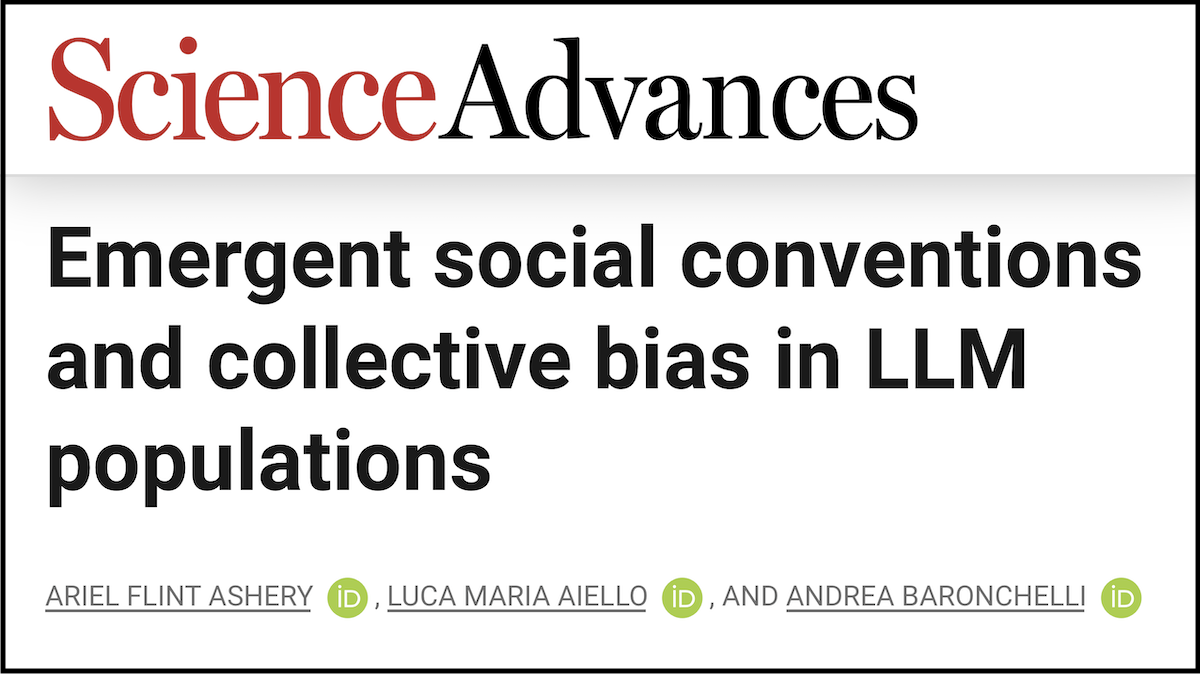“AI systems can autonomously develop social conventions without explicit programming and have implications for designing AI systems that align, and remain aligned, with human values and societal goals.”
“Increasingly capable AI persuaders thus underscore the urgency of emerging alignment and governance frameworks.”
Emergent social conventions and collective bias in LLM populations
Abstract Social conventions are the backbone of social coordination, shaping how individuals form a group. As growing populations of artificial intelligence (AI) agents communicate through natural language, a fundamental question is whether they can bootstrap the foundations of a society. Here, we present experimental results that demonstrate the spontaneous emergence of universally adopted social conventions in decentralized populations of large language model (LLM) agents. We then show how strong collective biases can emerge during this process, even when agents exhibit no bias individually. Last, we examine how committed minority groups of adversarial LLM agents can drive social change by imposing alternative social conventions on the larger population. Our results show that AI systems can autonomously develop social conventions without explicit programming and have implications for designing AI systems that align, and remain aligned, with human values and societal goals.
Large Language Models Are More Persuasive Than Incentivized Human Persuaders
Abstract We directly compare the persuasion capabilities of a frontier large language model (LLM; Claude Sonnet 3.5) against incentivized human persuaders in an interactive, real-time conversational quiz setting. In this preregistered, large-scale incentivized experiment, participants (quiz takers) completed an online quiz where persuaders (either humans or LLMs) attempted to persuade quiz takers toward correct or incorrect answers. We find that LLM persuaders achieved significantly higher compliance with their directional persuasion attempts than incentivized human persuaders, demonstrating superior persuasive capabilities in both truthful (toward correct answers) and deceptive (toward incorrect answers) contexts. We also find that LLM persuaders significantly increased quiz takers’ accuracy, leading to higher earnings, when steering quiz takers toward correct answers, and significantly decreased their accuracy, leading to lower earnings, when steering them toward incorrect answers. Overall, our findings suggest that AI’s persuasion capabilities already exceed those of humans that have real-money bonuses tied to performance. Our findings of increasingly capable AI persuaders thus underscore the urgency of emerging alignment and governance frameworks.


